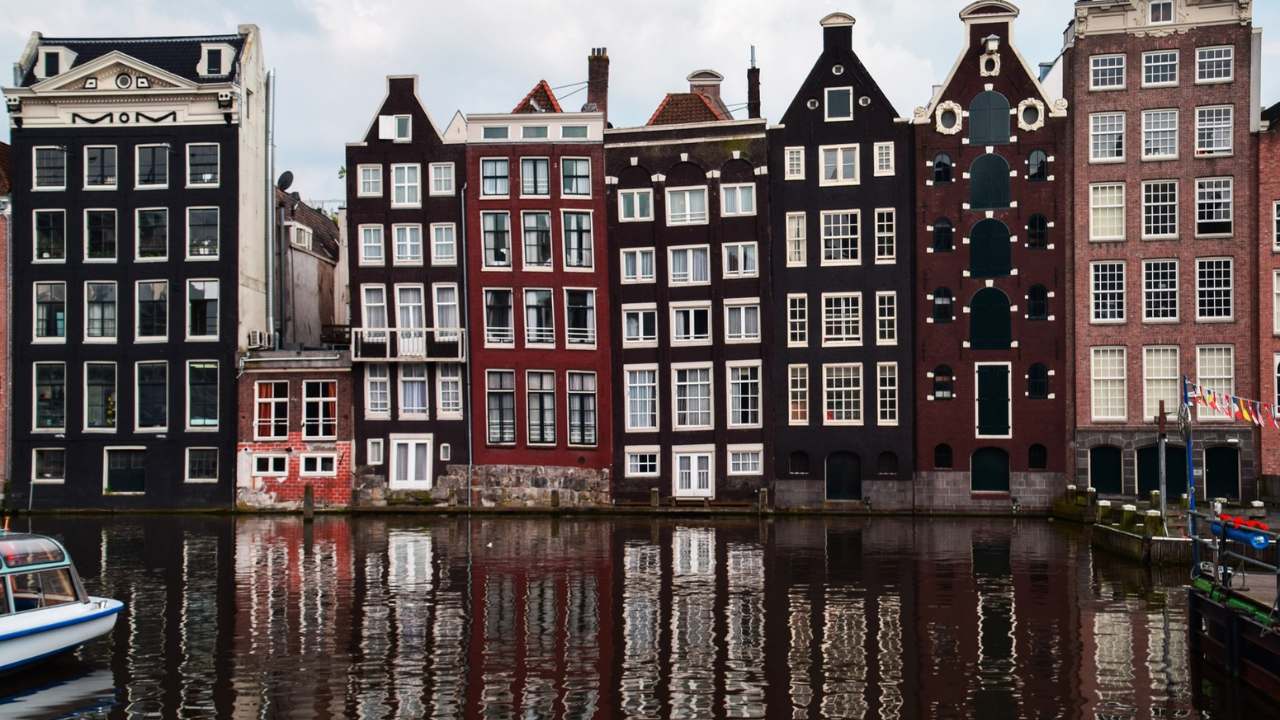Employer of Record vs. Setting up a local entity: Which is right for you?
Expanding your business to the Netherlands is an exciting step

Expanding your business to the Netherlands is an exciting step—but it raises a crucial question: should you set up your own local entity, or hire through an Employer of Record (EOR)?
Both options allow you to employ talent in the Netherlands, but they come with different responsibilities, costs, and timelines. In this article, we break down what each path entails, compare the pros and cons, and help you determine which route aligns with your company’s goals, resources, and timeline.
Employor of Record vs own entity: The basics
Before comparing which solution fits your business best, it’s important to understand what an Employer of Record actually is and how it differs from setting up your own Dutch legal entity. This section outlines the fundamentals of both models.
What is an Employer of Record (EOR)?
An Employer of Record (EOR) is a third-party organization that legally employs talent on behalf of your business. While your company oversees the day-to-day management of the employee, the EOR handles everything related to legal employment—contracts, payroll, tax, social security, and compliance with Dutch labor laws.
In the Netherlands, companies like Employor offer EOR services that simplify the process of hiring local or international talent, including supporting work and residence permit applications through their status as an IND-registered sponsor. With an EOR, your business doesn’t need to set up a Dutch entity to begin operations.
What is a local entity?
A local entity is a legally registered business structure that allows you to hire employees, sign contracts, and operate commercially within the Netherlands. The most common types of entities include:
- Subsidiary (B.V.) – A Dutch limited liability company, often used for more permanent expansion and full business operations.
- Branch office – An extension of your foreign company, without separate legal personality.
- Representative office – A light presence with no commercial activities, used mainly for research or local representation.
Setting up a local entity involves legal incorporation, registration with the Dutch tax authorities, and establishing local payroll systems. This route gives you full autonomy, but also full responsibility, for HR, compliance, and financial operations.
EOR vs Local Entity: Benefits and considerations compared
Now that we’ve covered the basics, let’s compare the advantages and challenges of each model side by side, so you can make an informed decision based on your hiring goals, speed, risk, and resources.
Employer of Record benefits
- Fast Market Entry: Hiring through an EOR allows you to onboard employees in a matter of days, not months.
- Exploration of New Markets: Ideal for testing the Dutch market before committing to long-term investment.
- Full HR & Payroll Support: All employment administration is handled for you. including payslips, tax returns, contract drafting, and end-of-year statements.
- Permit Support: Some hires, like highly skilled migrants, require employer sponsorship. An EOR like Employor, registered with the IND, can facilitate this.
- Cost Predictability: Employor works with fixed fees. No salary-based commissions. Ensuring transparency and equal treatment for all clients.
- Personalized Support: Unlike some platforms, Employor offers dedicated contact persons, no chatbots, just real people.
Employer of Record considerations
- You do not build your own Dutch legal presence.
- Suitable for leaner teams or shorter-term presence.
- Requires trusting a third party for employment responsibilities, though with a reliable partner, this is a strength rather than a weakness.
Local entity enefits
- Full Autonomy: You fully control all employment, operations, and strategy in the Netherlands.
- Legal Presence: Helpful for branding, physical presence, or local client-facing business.
- Direct Employment: Some companies prefer to employ directly for cultural or operational reasons.
Local entity setbacks
- Setup Time: Registering and operationalizing an entity in the Netherlands typically takes several months.
- Upfront Costs: Legal, tax, notarial, and compliance fees add up.
- Compliance Burden: You’re responsible for all local labor law, payroll taxes, and HR obligations.
Permit Limitations: You must register as a recognized IND sponsor to hire non-EU talent, an involved process in itself.
Employer of Record vs. Local entity comparison
Employer of Record vs. Setting up a local entity: When to use which option?
Not sure when to choose an EOR or a local entity? This section helps you decide which model fits your current needs, growth strategy, and available resources.
When to choose an EOR?
- You want to enter the market quickly and compliantly.
- You're testing the Dutch market before making a long-term commitment.
- You’re hiring a small team or a single employee.
- You need to hire non-EU employees and require permit sponsorship.
- You want to avoid the cost and risk of setting up your own entity—for now.
And when to choose a local entity?
- You’re planning a long-term presence in the Netherlands.
- You’re ready to invest time and resources in setup and operations.
- You want to hire a larger team and manage all aspects of employment yourself.
- You need a physical office, storefront, or local address.
- Your business model requires direct contractual relationships with clients or vendors.
Questions to ask before making a decision
Before you decide between an EOR and a local entity, ask yourself:
- How fast do we need to hire and operate in the Netherlands?
- What’s our planned headcount and growth trajectory in this market?
- Do we need IND sponsorship to hire international talent?
- Do we have in-house legal/HR capacity to handle Dutch employment law?
- Are we exploring the market—or fully committing from day one?
- Answering these questions will help clarify whether flexibility or long-term investment should lead your expansion strategy.
Key takeaways
Both EOR and entity setup are valid strategies for hiring in the Netherlands. it all depends on your goals. If you need speed, flexibility, and full HR support, an EOR like Employor is your best bet. We’ll help you test the market, stay compliant, and onboard international talent, without the complexity. If you’re ready to scale, establish a physical presence, and build a long-term Dutch team, then setting up your own entity may be the next step.
At Employor, we support both. Start with our EOR services, and we’ll guide you through a smooth transition when you’re ready to go local. Ready to expand to the Netherlands? Let’s simplify it together. Contact us to discuss your best option.
Frequently Asked Questions
An Employer of Record (EOR) is a third-party organization that legally employs people on behalf of another business and takes on the responsibilities of the official employer. This differs from traditional hiring where you employ workers directly and manage all legal, tax, and HR responsibilities.
What role does the EOR play in ensuring compliance with local immigration laws and regulations when hiring foreign talent?
When hiring highly skilled migrants, an Employer of Record can significantly simplify the process by:
- Handling Visa and Work Permits: Sponsoring the application and renewal of visas and work permits as required by local immigration laws.
- Ensuring Regulatory Compliance: Making sure that the employment practices meet local standards and regulations.
- Navigating Legal Requirements: Helping with the legal requirements for employing foreign nationals, including compliance with employment laws and regulations.
Choosing an Employer of Record (EOR) offers several significant advantages:Risk and responsibility transfer: If your company doesn't want to establish a local entity, an EOR allows you to transfer all risks and responsibilities associated with employment.Compliance assurance: An EOR ensures full compliance with Dutch labor and tax laws, reducing legal risks and complexities.Smooth handling of local processes: EORs facilitate smooth management of Dutch-specific processes around illness and vacation, ensuring adherence to local norms and regulations.Market exploration: An EOR allows you to explore the Dutch market without taking on significant risks, ideal for testing new business opportunities.Speed of hiring: EORs enable quick onboarding of employees in the Netherlands without the need to establish a legal entity.By leveraging an EOR's expertise and infrastructure, companies can expand into the Dutch market more efficiently, with reduced risk and better compliance with local regulations.
If you stop using an Employer of Record after one year, Employor will ensure that employment contracts are legally terminated. Alternatively, the client is free to take over the employee directly into their own payroll. This offers flexibility for companies that begin with an EOR solution and later transition to their own entity.
Yes, you can use an Employer of Record for short-term projects in the Netherlands. Employor can provide fixed-term contracts so employees can legally complete their assignments in the country. This makes EOR a practical solution for project-based work or temporary market entry.
The main difference between a PEO and an Employer of Record (EOR) is the relationship structure. A PEO is responsible for administrative tasks regarding the day-to-day HR activities and payroll, while an EOR becomes the legal employer of record for tax purposes and compliance but does not engage in the day-to-day operations of the client's business. Essentially, a PEO provides services, focusing on administrative tasks, under a co-employment arrangement. An EOR, on the other hand, assumes only the legal responsibilities for employment. Read our article about PEO vs EOR explained.

















